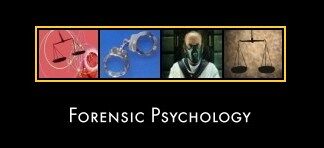 XXXX’s Ph.D. Psychology program is more than a logical progression for my academic and professional career, it is a truly natural choice, stemming from a lifelong desire to put action behind my passion for the inner workings of the human mind. Moreover, I feel I have exhausted every path of challenge and opportunity at my current academic level. While I have given all that I am to my work, my energy, creativity, I have been left wanting to give more and on a greater scale.
XXXX’s Ph.D. Psychology program is more than a logical progression for my academic and professional career, it is a truly natural choice, stemming from a lifelong desire to put action behind my passion for the inner workings of the human mind. Moreover, I feel I have exhausted every path of challenge and opportunity at my current academic level. While I have given all that I am to my work, my energy, creativity, I have been left wanting to give more and on a greater scale.
Through my educational and professional experiences in law enforcement and as a mental health pool therapist in a mental health hospital, I have seen a distinct and growing need for qualified and quality Clinical Psychologists in the field and am eager to fill this need. By increasing my depth of understanding in Criminal Psychology, I envision building my exposure in the field, helping law enforcement officials their families or victims of crime, PTSD sufferers, on their journey to sustainable, productive and meaningful lives. At this time, I have not ruled out the possibility of research into the area of Forensic Psychology, building on my academic introduction and understanding of Criminology.
Your Ph.D. Psychology program has the specific strength of allowing students to concentrate their studies in Forensic Psychology, and has stood out to me from the background noise of other universities. No other school could offer me the same level of curricular autonomy or exposure to experts in their field, nor the focus and chance for intensive exposure outside of the classroom. I feel that my academic and professional goals of working with Law Enforcement, understanding the criminal mind, social deviance, trauma and work as a professional witness will be served well for these reasons. Furthermore, while I am no stranger to research work, I embrace the fact that there is ample room for improvement in my own set of skills. I am confident that my research skills and analytic abilities would be heightened by the XXXX experience.
XXXX’s accomplished student body and benchmark-setting faculty will aid in my determining which setting(s) my sensibilities, strengths and clinical acumen will serve my future clients or patients best. Irrespective of the setting in which I focus my career, I am particularly sensitive to the needs of the socio-economically challenged, indigent and or those struggling with the assorted difficulties of acculturation. Given the increasing influx of culturally diverse individuals into America’s healthcare system, the need to serve the unique needs of at-risk populations is only going to grow. As with any preventative medical process, caring for the mental health of our communities is incredible important to help minimize complications that can come from undiagnosed, or under-treated conditions.
Growing up poor and in a community equally socio-economically depressed taught me at an early age the value of doing for yourself, that only through our own efforts can we ever hope to rise above, not just financially, but psychologically and emotionally. To this end, ever since high school, I have excelled in every academic venture I have undertaken, never giving in to naysayers, consistently focused on bringing my dreams to reality. The results speak for themselves, graduating Summa Cum Laude, Dean’s List, Psi Chi Honor Society membership, Mortar Board Vice President, and stellar GPAs.
Even in my extra curricular activities, I have given every ounce of who I am, earning at one point the coveted MVP soccer position for my College. The seriousness with which I have approached my academics is reflected outside the classroom as well, and I hold professional memberships with the SEPA and ACA. In all honesty, I cannot envision my future without including continuous education.
From the time I was in high school, I have been intrigued by the complexities of human behavior, and excelled in the sciences. My passion for Clinical Psychology though was not truly sparked until my own therapy experience. Later, in college, I gained my first exposure in the field, volunteering for an after-school program that served underprivileged youth. The experience was phenomenal, eye-opening, incredibly rewarding and solidified my certainty that my future must be in direct-client contact, aiding them through such issues as acculturation, helping prevent the underserved from falling through societal cracks. Their situations are truly fragile, easily leading to substance abuse, deeper levels of indigence, homelessness, abusive relationships, and crime. Their stories of struggling to fit in, to gain some sense of belonging and to bring their own personal dreams to life will stay with me forever.
Currently, in my position as a pool mental health therapist at a mental health hospital, I have been convinced that where we cannot help those from falling into self-destructive spirals, we, as Clinical Psychologists can do a great deal to bring healthy, sustainable lifestyle choices and strategies for living to those who need it most. My exposure to diverse individuals and families has increased through this work, and I feel confident in my abilities to serve them well. The realities of the underserved, the socio-economically challenged, at-risk populations and the marginalized have ignited a fire within me, a passion for helping them at all costs.
Furthermore, my experiences working within law enforcement have exposed me to the imperative needs of law enforcement officials and their families. Quality Clinical Psychologists are needed for not just a curative role, but also in a preventative capacity, helping families identify warning signs and develop proper coping skills for such issues as PTSD. Oftentimes, it is the spouse or children of officers that are on the front lines themselves of problems that they are simply not equipped to deal with. Upon building my exposure, post-graduation, I want to be instrumental in these situations, bringing the reality of a happier, healthier home life that I know can be attained to fruition, as well as sustained through effective relapse prevention plans, trigger identification and warning sign awareness. In the most practical terms, my work in law enforcement and fire dispatch have developed my ability to work well under pressure, to think clearly in emergency situations.
My strengths are not just in my practical experiences, but academics as well. The field of Forensic Psychology is truly transsystemic, and I feel that my own background in the pure sciences of biology, physics, chemistry as well as the social sciences of psychology, sociology, criminology and graduate mental health education are an excellent reflection and preparation for my future in the field. Having conducted and presented research, I am confident in my abilities, my own skin, and in the validity of my work.
Clinical Psychologists oftentimes work in conjunction with other mental health professionals, teams, even occupational therapists. Having worked in sports situations as a sports coordinator, head soccer and trainer for XXXX Soccer Association, as well as my own sporting activities, I have taken and applied lessons learned on the field, a sense of cooperation, goal-minded orientation and camaraderie to professional situations, to great effect.
No activity, no field has nor ever could bring me the same level of personal or professional satisfaction than when I have aided others in rebuilding their lives, or developing strategies for being. I look forward to my time serving my community, the poor, the needy, the marginalized, or those that feel they can no longer cope with life’s assorted difficulties get back on the path of living, and contributing to their lives and the lives of others.
Thank you for your time and consideration.
 I am a young Jewish woman originally from Russia. My family immigrated and settled in Pennsylvania. I will be completing my PHD this year in Psychology at Yeshiva University and I feel that I am a strong candidate for your internship program. I look forward to a long and distinguished career as a clinical psychologist working in the areas of rehabilitation and neuropsychology. I hope to work with immigrant and ethnic minority populations, especially the geriatric members of our Russian immigrant societies. This is how I feel I can provide the greatest service to my community as someone who is fluent in Russian. I can also read and write in both Hebrew and Spanish and I look forward to using these languages as well as a professional psychologist.
I am a young Jewish woman originally from Russia. My family immigrated and settled in Pennsylvania. I will be completing my PHD this year in Psychology at Yeshiva University and I feel that I am a strong candidate for your internship program. I look forward to a long and distinguished career as a clinical psychologist working in the areas of rehabilitation and neuropsychology. I hope to work with immigrant and ethnic minority populations, especially the geriatric members of our Russian immigrant societies. This is how I feel I can provide the greatest service to my community as someone who is fluent in Russian. I can also read and write in both Hebrew and Spanish and I look forward to using these languages as well as a professional psychologist.
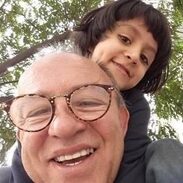
 I have a passionate commitment to my work as a psychologist, out of concern for the well-being of my clients and the community at large. As a result of my professional experience, I now have a great deal of confidence in my abilities to plan and organize professionally, to set priorities, to meet deadlines and to handle simultaneous demands and conflicting priorities.
I have a passionate commitment to my work as a psychologist, out of concern for the well-being of my clients and the community at large. As a result of my professional experience, I now have a great deal of confidence in my abilities to plan and organize professionally, to set priorities, to meet deadlines and to handle simultaneous demands and conflicting priorities.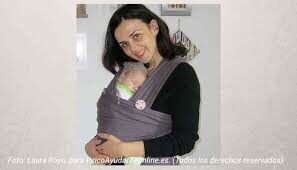




 As a 34-year old woman from Iran, I believe that my life experience and pronounced ability to overcome hardships make an excellent candidate for the doctoral program in Clinical Psychology at XXXX. I am extremely determined to contribute to constructive change in people’s lives. I am very highly motivated to succeed in your program because this will enable me to fulfill my calling, my duty to help abused women, like myself, that have been victimized by brutal forms of Islamic patriarchy. XXXX’s emphasis on producing and applying scientific knowledge to the assessment, understanding, and amelioration of human problems and its commitment to excellence in scientific training, using clinical science as the foundation for designing, implementing, and evaluating assessment and intervention procedures, will give me the tools that I need to establish an effective practice as a licensed clinical psychologist.
As a 34-year old woman from Iran, I believe that my life experience and pronounced ability to overcome hardships make an excellent candidate for the doctoral program in Clinical Psychology at XXXX. I am extremely determined to contribute to constructive change in people’s lives. I am very highly motivated to succeed in your program because this will enable me to fulfill my calling, my duty to help abused women, like myself, that have been victimized by brutal forms of Islamic patriarchy. XXXX’s emphasis on producing and applying scientific knowledge to the assessment, understanding, and amelioration of human problems and its commitment to excellence in scientific training, using clinical science as the foundation for designing, implementing, and evaluating assessment and intervention procedures, will give me the tools that I need to establish an effective practice as a licensed clinical psychologist.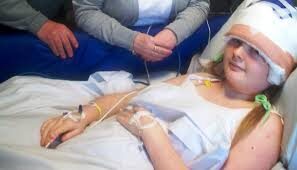 The greatest contribution that I might be able to make to society would be to improve the quality of life of children who have suffered brain damage. To this end I want to devote my professional life to research in the area of pediatric neuropsychology. I knew immediately that neurophysiology was the right career path for me when I saw how it could be combined with pediatrics. And I have been fortunate to work with one of the most distinguished professors and authorities in the field, Dr. XXXX, from whom I have learned a great deal. As a pediatric neuropsychologist, I hope to make scientific advances in the field that will help to increase the quality of life of brain damaged children and their families, helping them to better understand and cope with neuropsychological disorders.
The greatest contribution that I might be able to make to society would be to improve the quality of life of children who have suffered brain damage. To this end I want to devote my professional life to research in the area of pediatric neuropsychology. I knew immediately that neurophysiology was the right career path for me when I saw how it could be combined with pediatrics. And I have been fortunate to work with one of the most distinguished professors and authorities in the field, Dr. XXXX, from whom I have learned a great deal. As a pediatric neuropsychologist, I hope to make scientific advances in the field that will help to increase the quality of life of brain damaged children and their families, helping them to better understand and cope with neuropsychological disorders.  As a psychology professional, I wish to specialize in both the short and long terms in the area of community mental health. I look forward to a long and highly productive career helping a wide range of individuals in my community to realize their fullest potential, finding happiness in life through the development of healthy relationships with both family and society.
As a psychology professional, I wish to specialize in both the short and long terms in the area of community mental health. I look forward to a long and highly productive career helping a wide range of individuals in my community to realize their fullest potential, finding happiness in life through the development of healthy relationships with both family and society.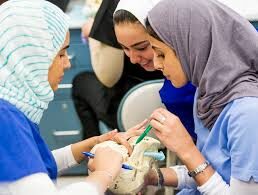
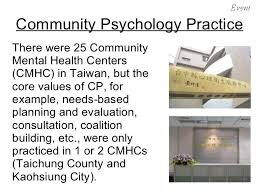
 At 26, I am a mature woman who is extremely dedicated to my studies. A very hard worker, my first love for many years has been my study of Psychology. I cannot, in fact, conceive of living for even a single day, much less a week, without indulging my addiction for psychological literature, self reflection, my quest for human growth, openness, and transformation of negative into positive energy, irrespective of the circumstance in which I find myself.
At 26, I am a mature woman who is extremely dedicated to my studies. A very hard worker, my first love for many years has been my study of Psychology. I cannot, in fact, conceive of living for even a single day, much less a week, without indulging my addiction for psychological literature, self reflection, my quest for human growth, openness, and transformation of negative into positive energy, irrespective of the circumstance in which I find myself.
 XXXX’s Ph.D. Psychology program is more than a logical progression for my academic and professional career, it is a truly natural choice, stemming from a lifelong desire to put action behind my passion for the inner workings of the human mind. Moreover, I feel I have exhausted every path of challenge and opportunity at my current academic level. While I have given all that I am to my work, my energy, creativity, I have been left wanting to give more and on a greater scale.
XXXX’s Ph.D. Psychology program is more than a logical progression for my academic and professional career, it is a truly natural choice, stemming from a lifelong desire to put action behind my passion for the inner workings of the human mind. Moreover, I feel I have exhausted every path of challenge and opportunity at my current academic level. While I have given all that I am to my work, my energy, creativity, I have been left wanting to give more and on a greater scale.